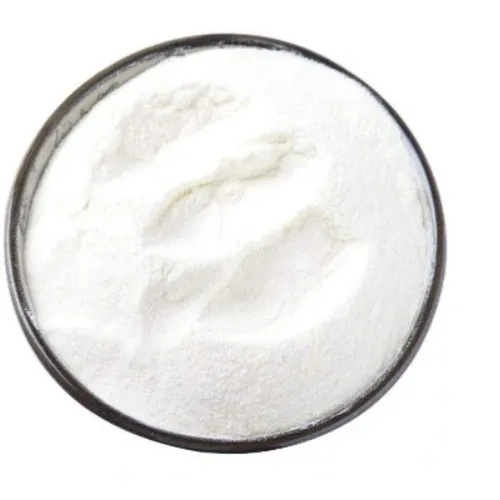Warning: Undefined array key "title" in /home/www/wwwroot/HTML/www.exportstart.com/wp-content/themes/1198/header.php on line 6
Warning: Undefined array key "file" in /home/www/wwwroot/HTML/www.exportstart.com/wp-content/themes/1198/header.php on line 7
Warning: Undefined array key "title" in /home/www/wwwroot/HTML/www.exportstart.com/wp-content/themes/1198/header.php on line 7
Warning: Undefined array key "title" in /home/www/wwwroot/HTML/www.exportstart.com/wp-content/themes/1198/header.php on line 7
- Afrikaans
- Albanian
- Amharic
- Arabic
- Armenian
- Azerbaijani
- Basque
- Belarusian
- Bengali
- Bosnian
- Bulgarian
- Catalan
- Cebuano
- China
- China (Taiwan)
- Corsican
- Croatian
- Czech
- Danish
- Dutch
- English
- Esperanto
- Estonian
- Finnish
- French
- Frisian
- Galician
- Georgian
- German
- Greek
- Gujarati
- Haitian Creole
- hausa
- hawaiian
- Hebrew
- Hindi
- Miao
- Hungarian
- Icelandic
- igbo
- Indonesian
- irish
- Italian
- Japanese
- Javanese
- Kannada
- kazakh
- Khmer
- Rwandese
- Korean
- Kurdish
- Kyrgyz
- Lao
- Latin
- Latvian
- Lithuanian
- Luxembourgish
- Macedonian
- Malgashi
- Malay
- Malayalam
- Maltese
- Maori
- Marathi
- Mongolian
- Myanmar
- Nepali
- Norwegian
- Norwegian
- Occitan
- Pashto
- Persian
- Polish
- Portuguese
- Punjabi
- Romanian
- Russian
- Samoan
- Scottish Gaelic
- Serbian
- Sesotho
- Shona
- Sindhi
- Sinhala
- Slovak
- Slovenian
- Somali
- Spanish
- Sundanese
- Swahili
- Swedish
- Tagalog
- Tajik
- Tamil
- Tatar
- Telugu
- Thai
- Turkish
- Turkmen
- Ukrainian
- Urdu
- Uighur
- Uzbek
- Vietnamese
- Welsh
- Bantu
- Yiddish
- Yoruba
- Zulu
Jul . 29, 2024 00:34 Back to list
The Impact of Aspartame Concentration in Water on Flavor Perception and Health Considerations
Understanding Aspartame in Water A Comprehensive Overview
Aspartame is an artificial sweetener that has garnered significant attention since its introduction in the 1980s. It is commonly used as a sugar substitute in various food and beverage products due to its sweetness, which is approximately 200 times greater than that of sucrose. One area of interest regarding aspartame is its behavior and stability when dissolved in water. This article explores the characteristics, uses, and potential health implications of aspartame in aqueous solutions.
Composition and Stability of Aspartame in Water
Aspartame is comprised of two amino acids phenylalanine and aspartic acid, along with a methyl ester group. When dissolved in water, aspartame dissociates into its constituent amino acids. This dissolution process is crucial for its application as a sweetener in beverages, as it allows for easy mixing and uniform sweetness. A key aspect to consider is the stability of aspartame in water, which is influenced by factors such as pH, temperature, and exposure to light. Generally, aspartame is stable in low-temperature aqueous environments. However, when exposed to high temperatures or prolonged storage, especially in high pH conditions, aspartame may degrade, leading to a loss of sweetness and the formation of byproducts, some of which may have health implications.
Regulatory Status and Safety Assessment
Aspartame is approved for use in food and beverages by several global regulatory agencies, including the U.S. Food and Drug Administration (FDA), the European Food Safety Authority (EFSA), and the World Health Organization (WHO). These organizations have conducted extensive assessment studies to evaluate its safety. The acceptable daily intake (ADI) for aspartame is set at 50 mg/kg body weight in the United States and 40 mg/kg in Europe, accounting for its extensive use in a variety of products ranging from soft drinks to sugar-free gum.
aspartame in water

Nevertheless, the safety of aspartame has been a topic of debate for many years. Some studies have linked it to various health issues, provoking concerns among consumers. One of the noteworthy health considerations is phenylketonuria (PKU), a rare genetic disorder that affects the metabolism of phenylalanine – one of the components of aspartame. For individuals with PKU, consumption of aspartame can lead to dangerous levels of phenylalanine in the body, underscoring the importance of labeling products containing aspartame.
Taste and Consumer Preferences
The unique taste profile of aspartame, which provides sweetness without the calories associated with sugar, has made it a popular choice among consumers looking to reduce sugar intake. Its solubility in water allows for seamless incorporation into various beverages without altering the flavor significantly. This capacity is particularly appealing for manufacturers of diet and low-calorie drinks, where maintaining a pleasing taste while minimizing caloric content is critical.
However, consumer preferences are shifting with growing awareness of health and wellness. Many individuals are opting for natural sweeteners like stevia or monk fruit extract, driven by a desire for fewer synthetic ingredients in their diets. This shift has led to a reevaluation of aspartame's role in the market, prompting ongoing research into its long-term effects on health and its sustainability as a common sweetening agent.
Conclusion
Aspartame remains a widely used artificial sweetener in water-based products, largely due to its high sweetness intensity and low-calorie content. While regulatory bodies deem it safe within established limits, ongoing consumer dialogue and research into its health implications continue to shape its acceptance. As public demand shifts towards natural alternatives, the future of aspartame usage in beverages and its implications for health will likely remain at the forefront of discussions surrounding sweeteners.
Latest news
-
Certifications for Vegetarian and Xanthan Gum Vegetarian
NewsJun.17,2025
-
Sustainability Trends Reshaping the SLES N70 Market
NewsJun.17,2025
-
Propylene Glycol Use in Vaccines: Balancing Function and Perception
NewsJun.17,2025
-
Petroleum Jelly in Skincare: Balancing Benefits and Backlash
NewsJun.17,2025
-
Energy Price Volatility and Ripple Effect on Caprolactam Markets
NewsJun.17,2025
-
Spectroscopic Techniques for Adipic Acid Molecular Weight
NewsJun.17,2025

